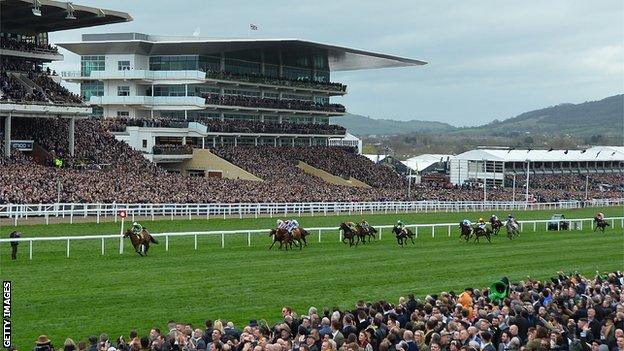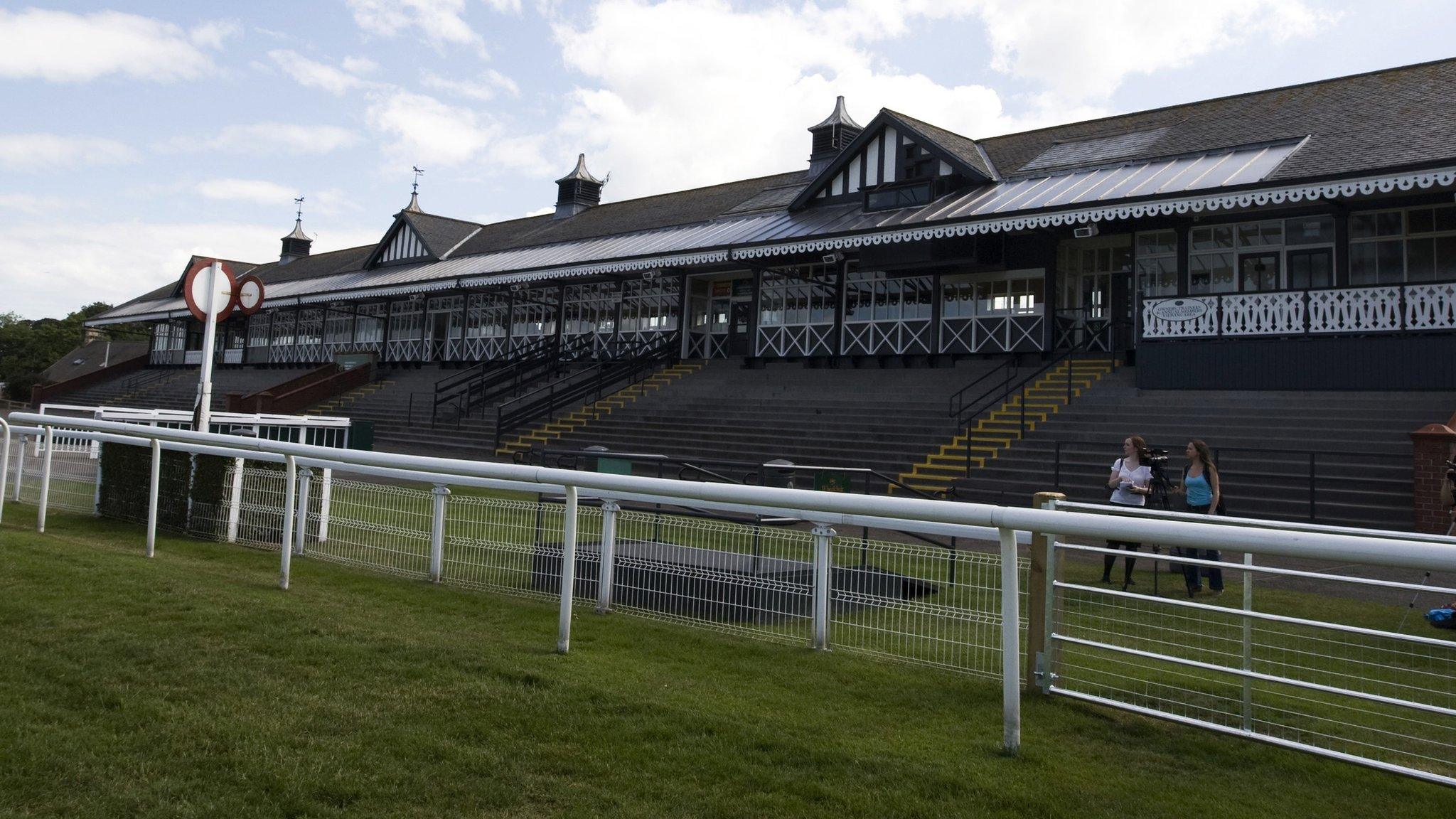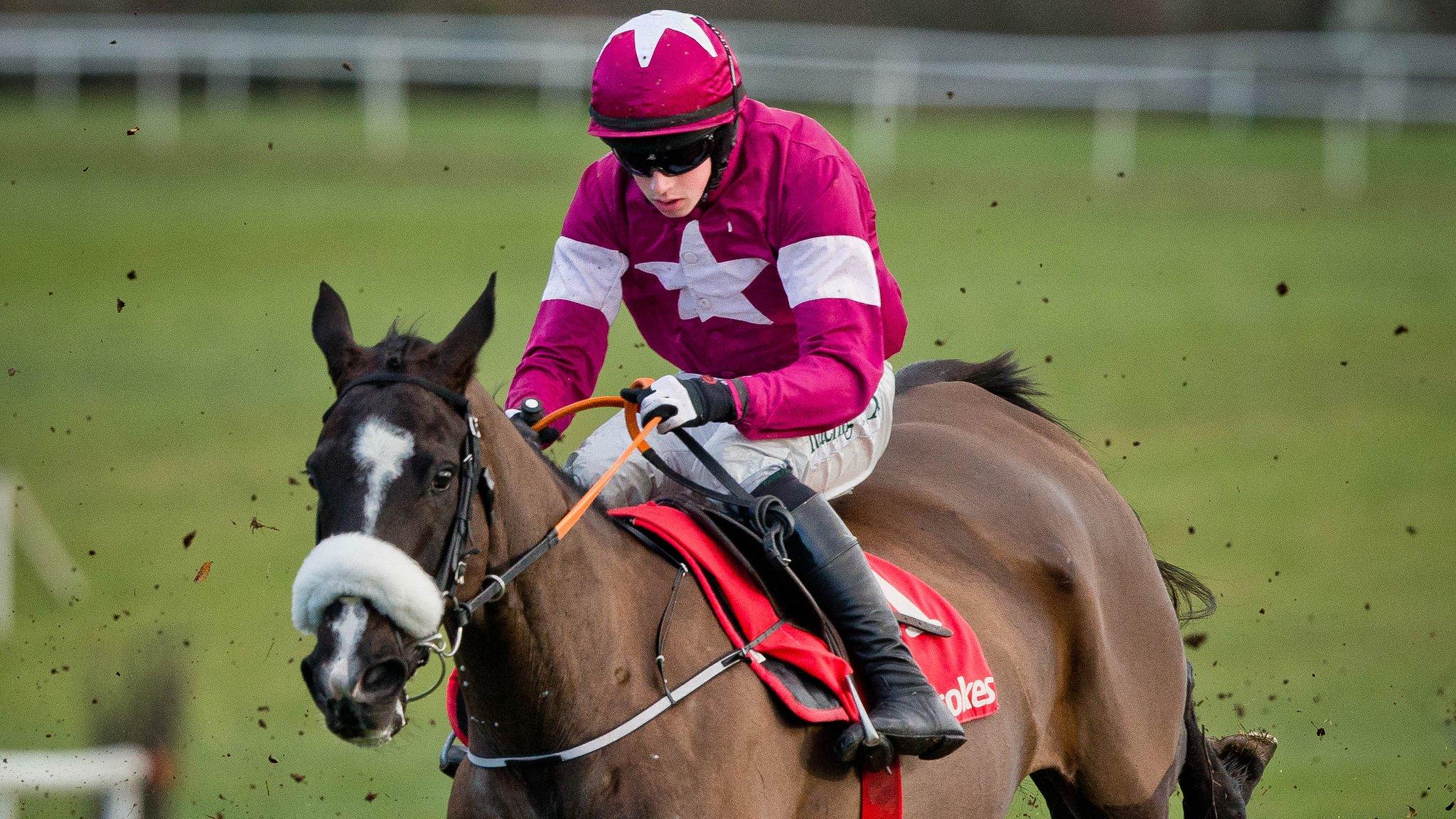Equine flu: British racing on lockdown following outbreak
- Published
Equine flu: Inside the Newmarket laboratory that detected the outbreak
More than 100 stables are on lockdown as British horse racing is suspended in an attempt to control the equine flu crisis.
A six-day shutdown of racing has been imposed, with hundreds of horses effectively under quarantine.
Racing is suspended until Wednesday at the earliest as the sport awaits crucial test results.
These will show whether the outbreak has spread further and guide decisions around when racing might resume.
They will also reveal whether the outbreak will have any impact on next month's showpiece Cheltenham Festival.
Top trainers Nicky Henderson and Paul Nicholls are among those affected by the shutdown.
"I'm estimating that there will be 1,500-plus taken overall today," Henderson told BBC Radio 5 live of the swab tests being carried out across Britain by vets.
Equine influenza is not markedly different from human flu - infected horses suffer with coughing and runny noses and generally feel run-down.
While it is not thought to be life-threatening, like any virus, it limits the ability to compete and it is highly contagious.
Henderson's leading hopes for the Festival include champion hurdler Buveur D'Air and champion chaser Altior.
"We have a team of six vets taking nasal swabs off the 150 horses here," said the Festival's all-time leading trainer, who is based at Lambourn in Berkshire.
"They are then going to be driven to the Animal Health Trust at Newmarket, where they will be analysed."
How has the situation unfolded?
The crisis was sparked on Wednesday night when three vaccinated horses tested positive at the Cheshire stables of Grand National-winning trainer Donald McCain - whose late father Ginger saddled the legendary Red Rum to a record three National wins in the 1970s.
Because other horses from McCain's yard had raced at Ayr, Ludlow and Wolverhampton this week, he swiftly raised the alarm and the British Horseracing Authority (BHA) ordered all four meetings on Thursday to be cancelled.
Welsh trainer Tim Vaughan describes the equine flu outbreak as 'quite frightening'
This was later extended to a total shutdown of racing until Wednesday at the earliest, with more news expected on Monday when the results of tests are known. Racing is continuing as normal in the Republic of Ireland.
Newbury's 'Super Saturday' meeting - where last year's Cheltenham Gold Cup winner Native River was due to have a final race before his title defence - is among the casualties, although there are hopes some of the big races may be rescheduled for a later date.
"We did have two horses running at Ludlow on Wednesday where there was a horse that has come from Donald's yard, and it could have been in contact with an infected horse," said Henderson.
"It is very, very virulent so it does not matter how much pains you go through to keep these things at bay, it is very dangerous.
"We are all totally vaccinated, rigidly, it's compulsory. Unfortunately, I am told there is only 40% of the horse world - of the horses in Britain - that are actually vaccinated. There is no jurisdiction for horses outside of racing to say that you have to be vaccinated.
"Like in humans, there are many, many strains of it. So it is possible there is a new one that you don't know about."
Flu sends 'shockwaves' through racing - but hope for Cheltenham

Cheltenham Festival attracts thousands of race fans across the four-day event
It is too early to say "definitively" whether the four-day Festival, due to start on 12 March, will go ahead, said BHA chief executive Nick Rust.
He hopes quick action by the sport's governing body, trainers and vets will limit the outbreak's effects to a few weeks at the most.
Jockeys, trainers, owners and punters are all hoping history does not repeat itself - 18 years ago, foot-and-mouth disease led to the Festival being called off.
Trainer Lawney Hill told BBC World: "It is damaging but it's showing how quickly the British Horseracing Authority and the Animal Horse Trust have moved to contain the virus, by stopping the movement of horses and stopping racing - it's the only thing to do to control the virus.
"When the email came through at 11.30pm (on Wednesday) from the BHA it sent shockwaves through the industry.
"All the trainers (over 100) who had runners at meetings on Wednesday have given nasal swabs to their horses, everyone has moved very quickly. It augurs well for Cheltenham to go ahead in a month's time."
- Published7 February 2019

- Published7 February 2019
